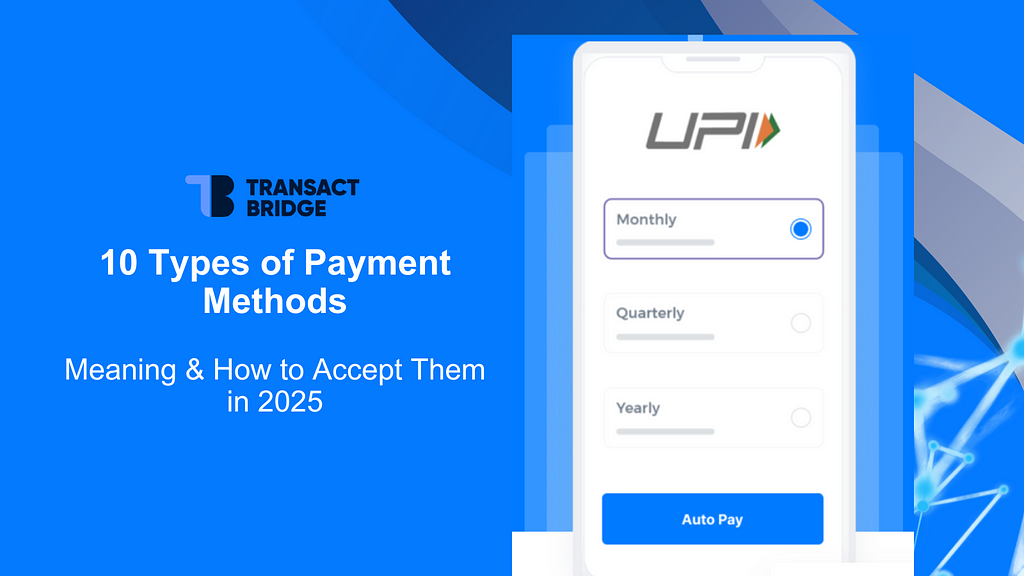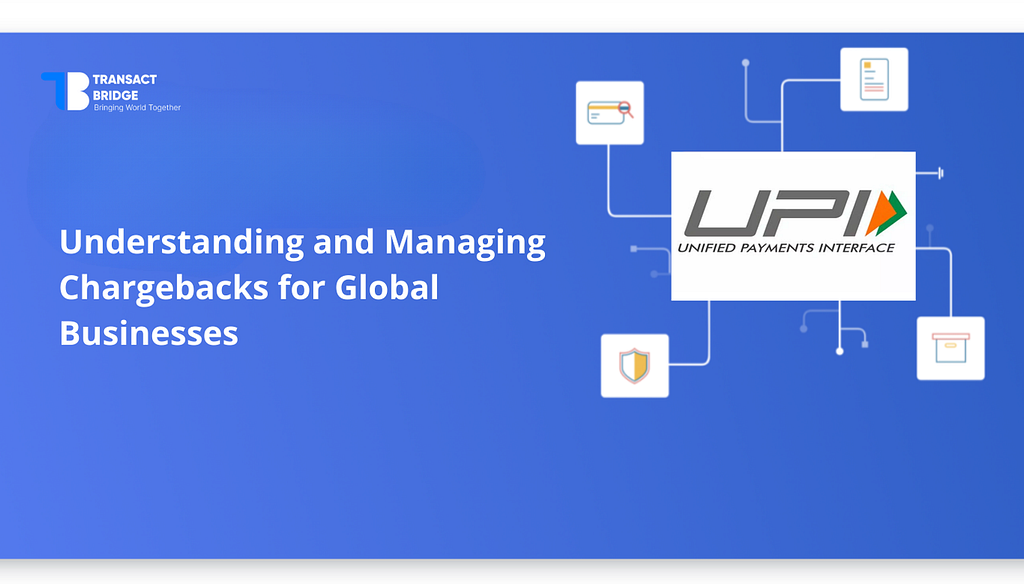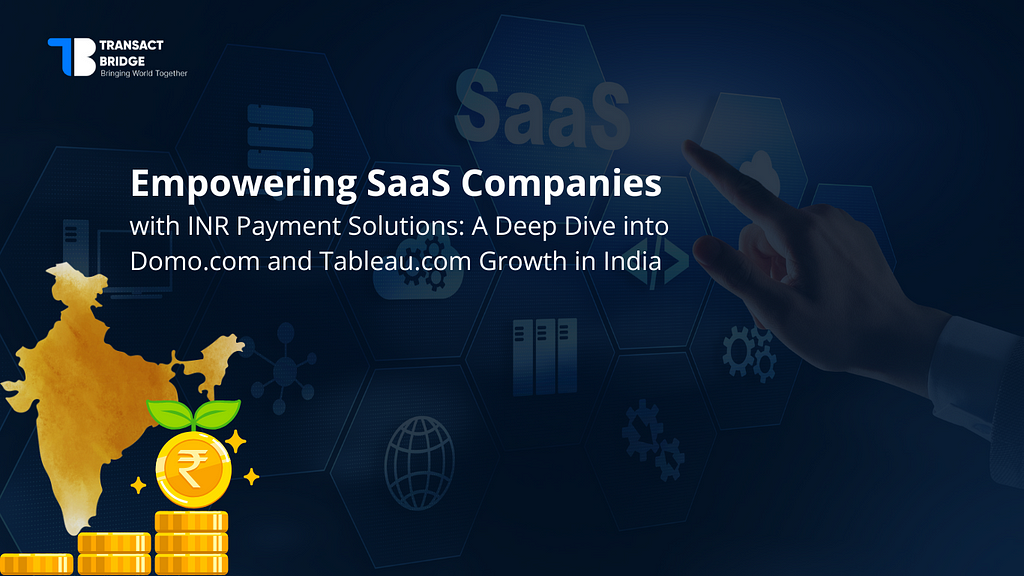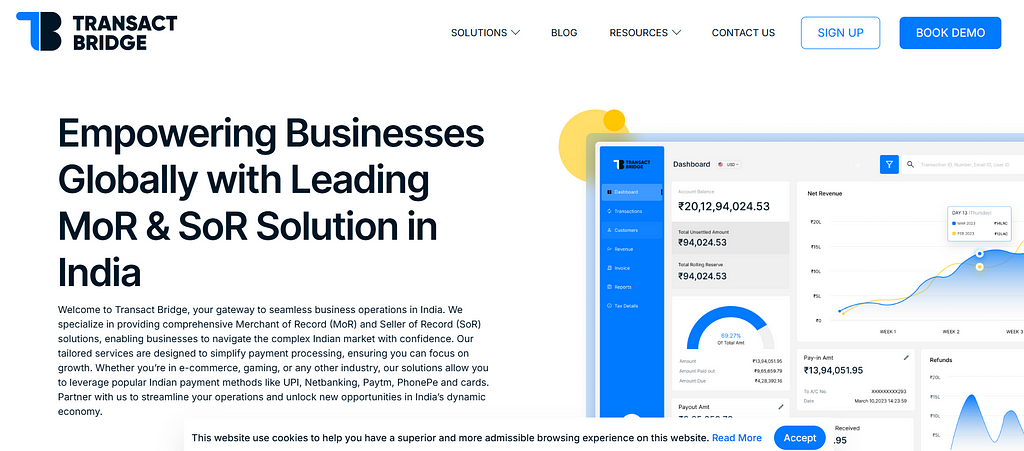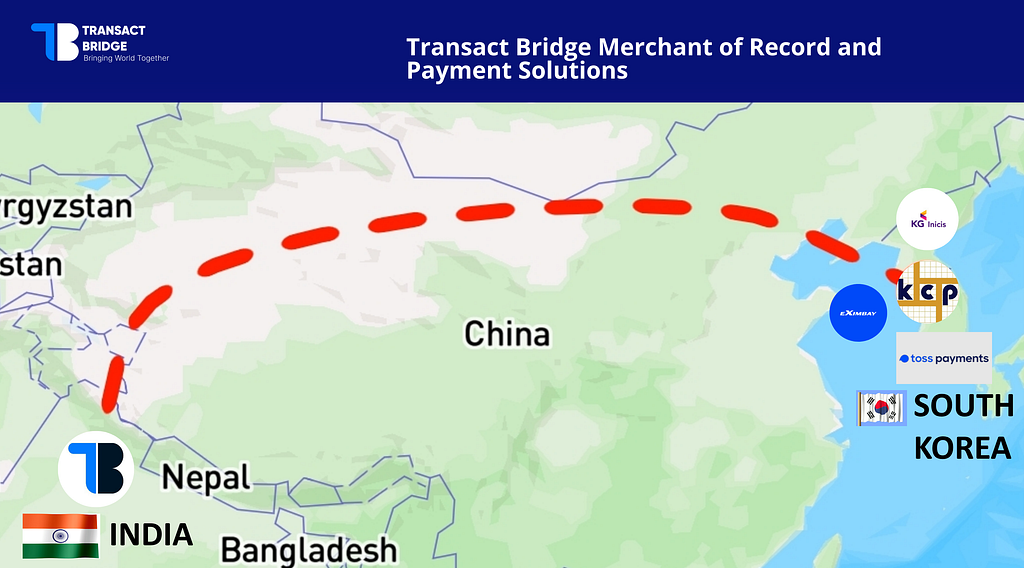
Payment Solutions for African Countries in the Indian Market: How Transact Bridge Unlocks Growth
Published on: Wed 02-Jul-2025 09:44 AM

Africa is witnessing a fintech revolution. With the rapid rise of mobile money, digital wallets, and cross-border payment solutions, the continent is on a fast-track journey toward becoming a global player in digital finance. At the same time, India, with its booming digital economy, over 1.4 billion people, and an ultra-localized payment ecosystem dominated by UPI and mobile wallets, has become one of the most attractive consumer markets in the world.
But here's the catch: entering the Indian market is not simple—especially for African digital companies. From regulatory barriers and taxation headaches to integration issues and currency restrictions, the gap between Africa’s thriving fintech platforms and India’s hyper-local payment landscape has been difficult to bridge—until now.
This is where Transact Bridge steps in. As a Merchant of Record (MoR) and compliance infrastructure platform, Transact Bridge helps African companies tap into the Indian market without setting up a local entity or getting buried in legal red tape.
This article explores:
Why African businesses are eyeing India
Why India Attracts African Companies
The major hurdles they face
How Transact Bridge solves those problems
Real strategies African fintechs can adopt to scale in India
Why Indian Market is Irresistible for African Fintech and Digital Companies
India is not just a large market—it’s digitally obsessed. Key stats:
Over 900 million internet users
UPI processed over 110 billion transactions in 2024 alone
Youth-dominated consumer base: 65% of India is under 35
A flourishing creator economy, mobile-first user behavior, and rising demand for digital content
For African startups in mobile money, remittances, digital gaming, streaming, SaaS, EdTech, and top-up services, India represents:
A cost-effective market to scale
A user base familiar with microtransactions
The opportunity to expand beyond traditional remittance corridors
But capturing this demand is harder than it looks.
Why India Attracts African Companies
Several African countries are strategically positioned to benefit from Indian digital consumer demand:
🇳🇬 Nigeria
Home to Africa’s biggest tech ecosystem and digital exports.
Nigerian platforms in music (Boomplay), gaming, and social chat apps already see strong usage by Indian diaspora and Gen Z Indian audiences.
Nigeria also leads in fintech, making it a natural match for India’s digital-first users.
🇰🇪 Kenya
A global leader in mobile money adoption via M-PESA.
Kenyan startups in EdTech, agri-fintech, and SaaS are looking east to India for expansion.
Rising youth consumption of video content and e-learning makes India an appealing market.
🇿🇦 South Africa
Strong presence in cloud-based software, creator tools, and marketplaces.
Indian developers and creators use South African platforms for remote work, community tools, and B2B services.
The country's fintech startups, such as those in crypto/payments, are eyeing India’s consumer base.
🇪🇬 Egypt
Egypt’s streaming services, gaming publishers, and e-commerce apps are gaining traction in India.
India also has growing bilateral investment and content collaborations with Egyptian media and digital agencies.
These countries not only have high digital engagement but also a shared cultural affinity with India: affordable data, mobile-first users, and a young, urbanized population.
Barriers Facing African Companies Entering India
1. Lack of Access to India’s Local Payment Methods
Most African companies use international gateways like Paystack, Flutterwave, Stripe, or PayPal. But in India, those won't cut it. Indian consumers mostly use:
UPI (80%+ market share)
Local cards (RuPay)
Mobile wallets like PhonePe, Paytm, Google Pay
Net banking
If you're not plugged into these rails, you're invisible. Global payment methods like Visa and Mastercard barely penetrate Tier 2 and 3 Indian cities. For African companies relying on card-based systems, this means low conversion and massive cart abandonment.
2. Recurring Payment Failures
India’s central bank, RBI, has made automatic recurring payments painful due to tokenization rules and Additional Factor Authentication (AFA) requirements.
If you're a subscription-based business (streaming, SaaS, EdTech), expect:
Drop-offs due to failed auto-renewals
Customer friction during payment
Lost revenue if your systems aren’t UPI AutoPay compliant
3. No Local Entity, No Access
India doesn’t allow foreign companies to access local gateways without registering a local company. But setting up in India involves:
Incorporation under Indian law
Monthly GST filings
TDS deduction and compliance
FEMA approvals for fund repatriation
Local team and legal infrastructure
For many African companies, this is a financial and operational non-starter.
4. High Tax and Legal Complexity
Companies not complying with India’s strict taxation laws face:
18% GST on digital services
TDS on payouts to creators or affiliates
Withholding taxes and additional levies
Penalties for late filings and legal non-compliance
International brands also get flagged for data localization violations, especially those in streaming, gaming, or content monetization.
How Transact Bridge Solves These Challenges
Transact Bridge isn’t just a payment gateway—it’s an entire India-market operating layer for global businesses. It offers Merchant of Record (MoR) infrastructure, meaning:
You don’t need to set up an Indian company, hire accountants, or navigate Indian banking. Transact Bridge does it all for you.
Here’s how it works for African companies:
Accept All Local Indian Payments
UPI, Wallets, NetBanking, RuPay, Visa, Mastercard – all supported
Works with 10+ local acquirers, not just one
Supports recurring payments via UPI AutoPay and e-NACH
Plug-and-Play Integration
Transact Bridge offers APIs and custom checkout flows
Optional dedicated branded webshop for Indian users (no integration needed)
Tax and Compliance Taken Care Of
Acts as legal Seller of Record
Handles GST, TDS, RBI reporting
Provides GST-compliant invoicing for customers
Reduces legal and admin penalties with full documentation
No Local Entity Required
Avoids the time, cost, and compliance burden of setting up an Indian company
Great for African startups wanting to test or scale fast
Fast Fund Repatriation
Fully RBI-compliant payouts
Handles all required forms (15CA, 15CB, TRC, etc.)
Enables smooth USD withdrawals to African HQs or holding entities
Built-In Fraud and Chargeback Management
Reduces risk of revenue loss from disputes
Fights chargebacks on your behalf
Monitors for unauthorized child payments and suspicious activity
Use Cases: How African Companies Can Win in India
Gaming & Digital Goods Platforms
African game publishers and top-up marketplaces (e.g., mobile recharge, in-app credits) can:
Sell in-game currency using local UPI/wallets
Monetize Indian gamers with micro-payments
Handle chargebacks and fraud through Transact Bridge
Streaming & Music Platforms
African creators and media companies can:
Offer ad-free subscriptions in INR
Integrate UPI AutoPay for recurring revenue
Serve users without Indian cards
EdTech & SaaS Providers
For African online learning platforms:
Localized pricing increases conversions
UPI recurring helps retain paying students
No need to open an Indian branch office
Remittance or Cross-border Fintech
African payment apps can:
Create dedicated India webshops for recharges/top-ups
Allow Indian diaspora to fund African wallets
Use Transact Bridge to manage local settlement, compliance, and repatriation
Why Merchant of Record (MoR) Is a Gamechanger
Here’s why MoR beats other India-entry models:
Feature | MoR (Transact Bridge) | Indian Entity Setup | Local Gateway | Stripe/PayPal |
Setup Time | Days | 3–6 months | Weeks | Weeks |
Legal Entity Needed | ❌ | ✅ | ✅ | ❌ |
UPI/Wallet Support | ✅ | ✅ | ✅ | ❌ |
Recurring Payments | ✅ | ⚠️ Manual Setup | ⚠️ Limited | ❌ |
GST/TDS Compliance | ✅ | Manual | ❌ | ❌ |
Repatriation Support | ✅ | Complex | ❌ | ❌ |
Fraud & Chargebacks | ✅ | Manual | ❌ | ❌ |
Admin Overhead | Minimal | High | Medium | Medium |
Transact Bridge vs Stripe for African Companies in India
Stripe supports card payments—but that’s a tiny slice of how India transacts. Stripe doesn’t support:
UPI (used by 80%+ of Indians)
Local wallets
Compliance filings
Fund repatriation from India
If you rely solely on Stripe, you lose out on 90% of the Indian market and may face tax and regulatory risks.
Transact Bridge is built ground-up for the Indian context—from payments to paperwork.
Conclusion: India is a Goldmine—If You Have the Right Partner
India is not optional. For African businesses in the digital and fintech space, it’s the next big frontier. But it’s also a regulatory maze.
Transact Bridge acts as the bridge between Africa and India—giving you all the tools to succeed:
Local payment collection
Legal and tax compliance
Smart routing and high success rates
Fast onboarding with zero local setup
If you're an African business ready to monetize in India, Transact Bridge is your plug-and-play partner.
Transact Bridge also provide UPI payment solutions for US businesses in Indian Market.
→ Visit Transact Bridge.com to get started.





